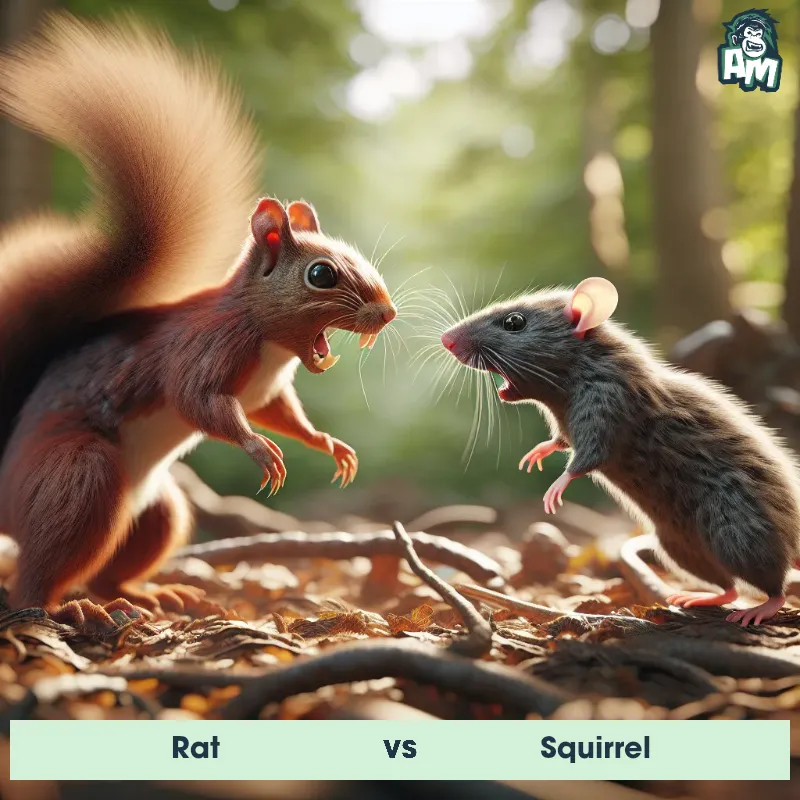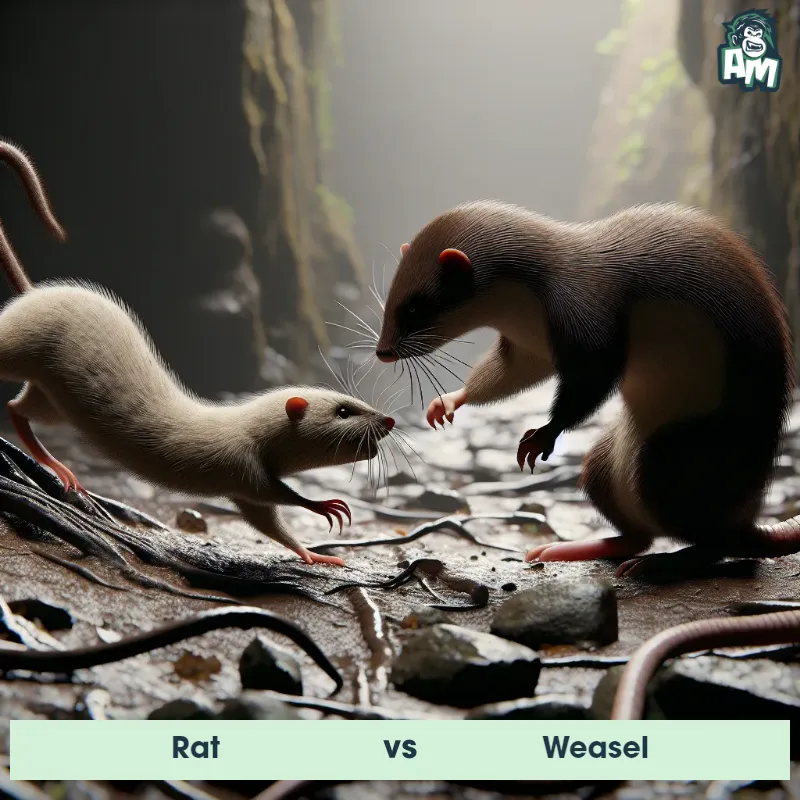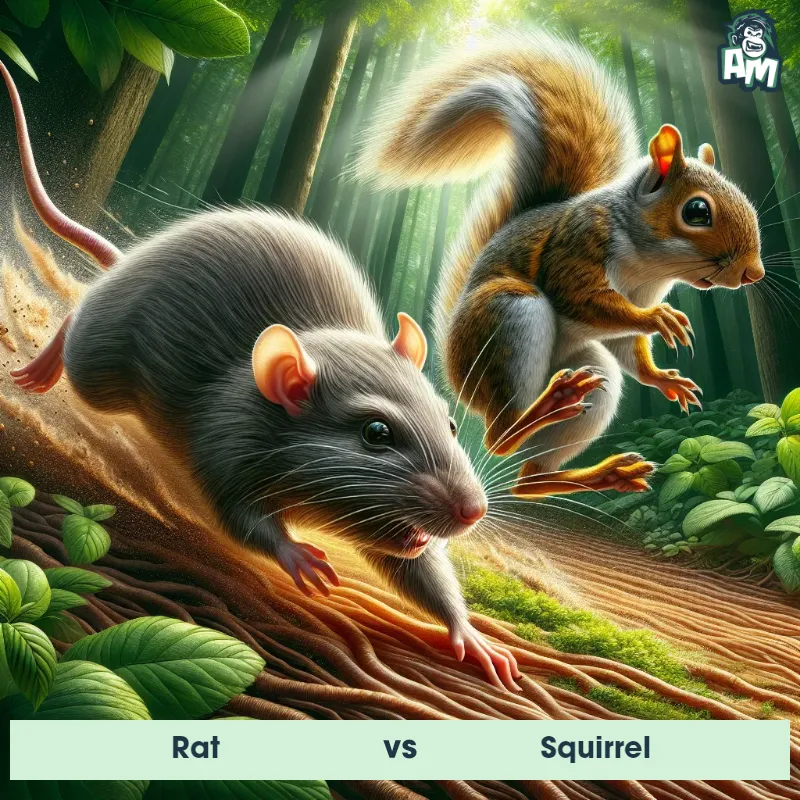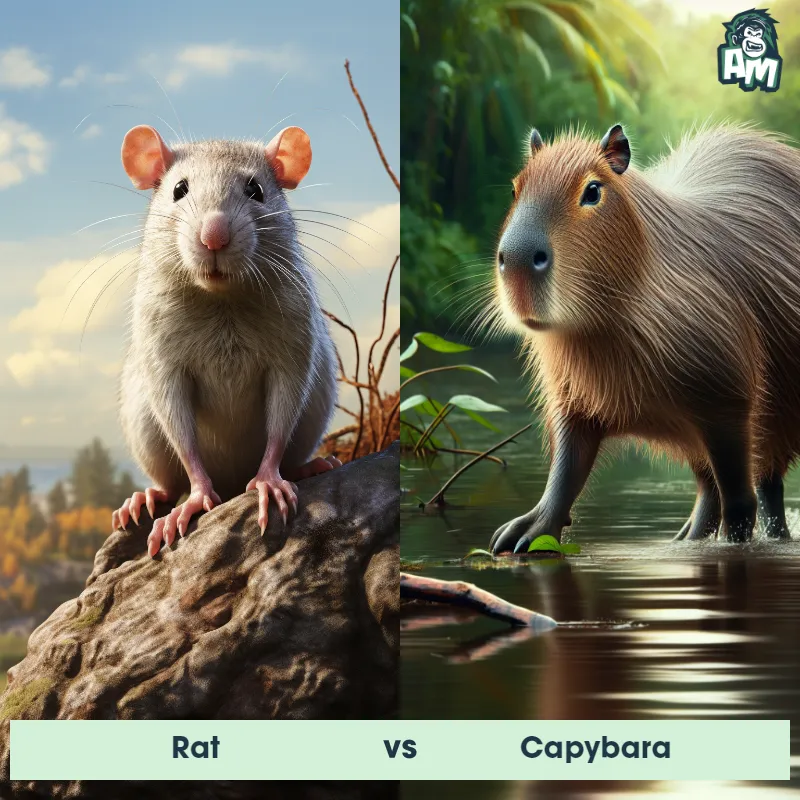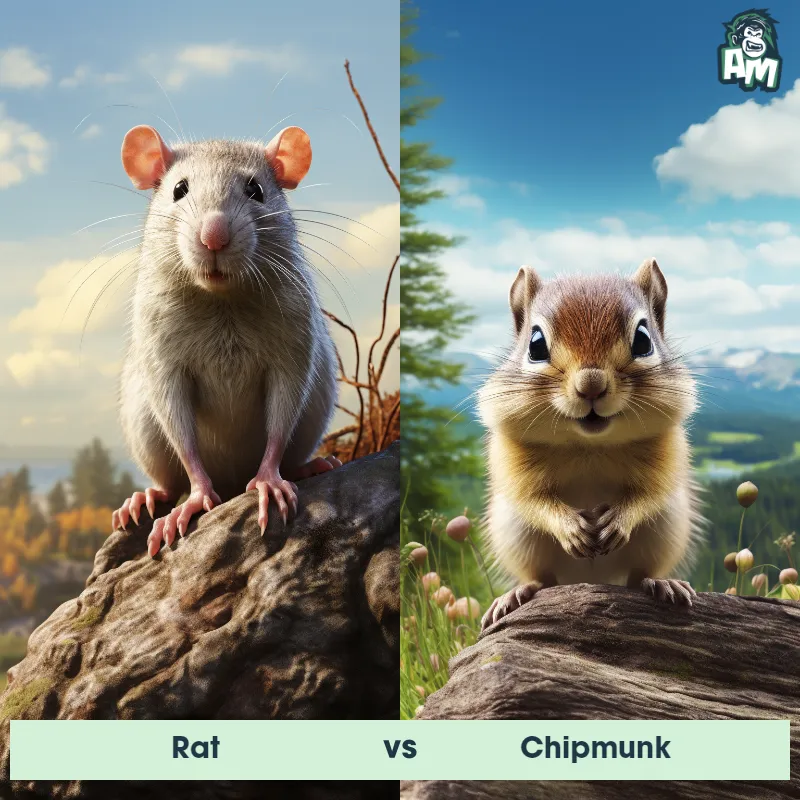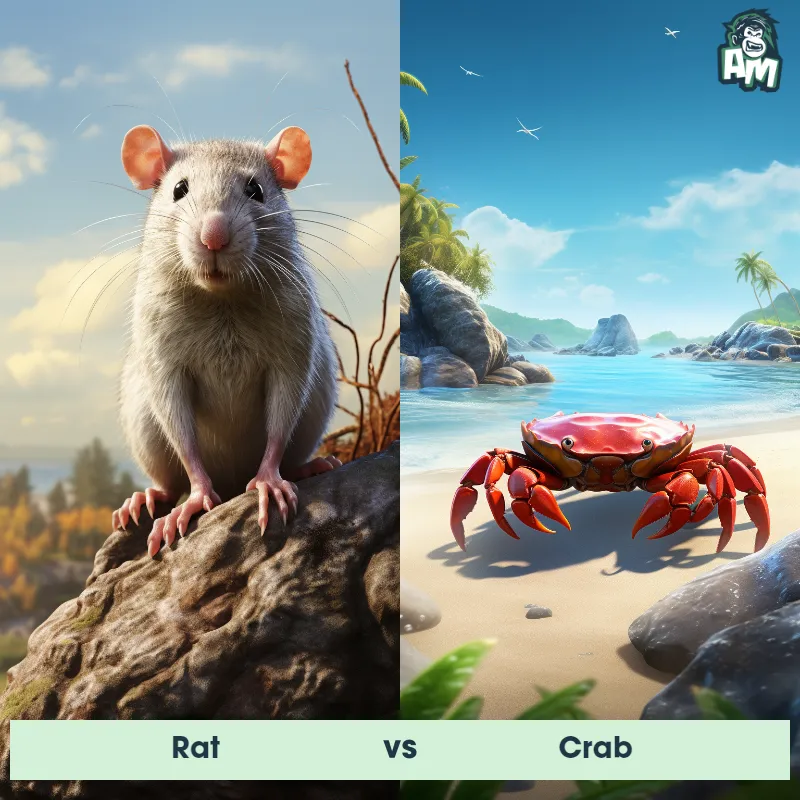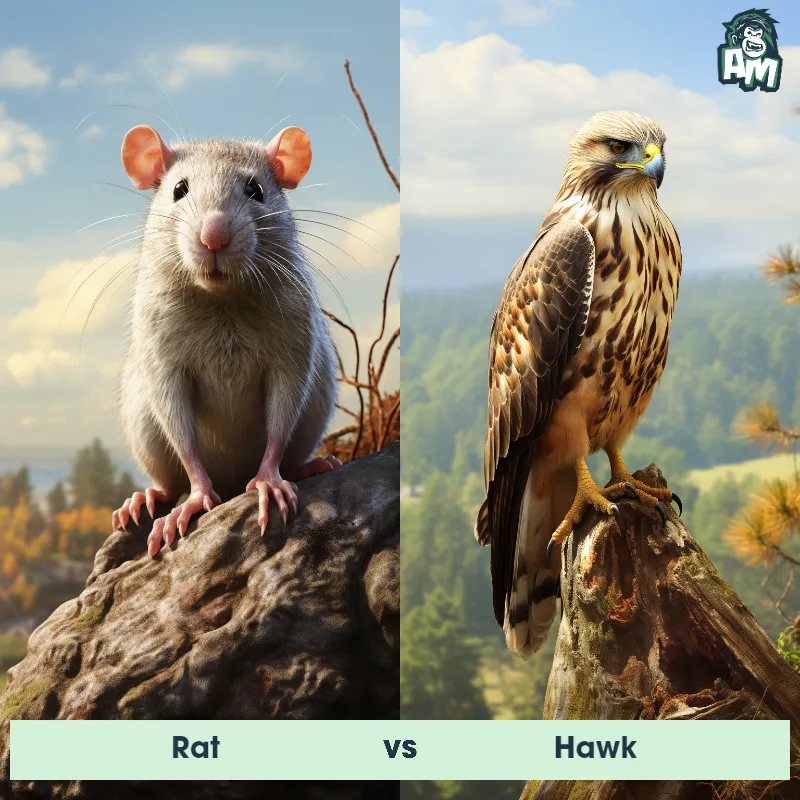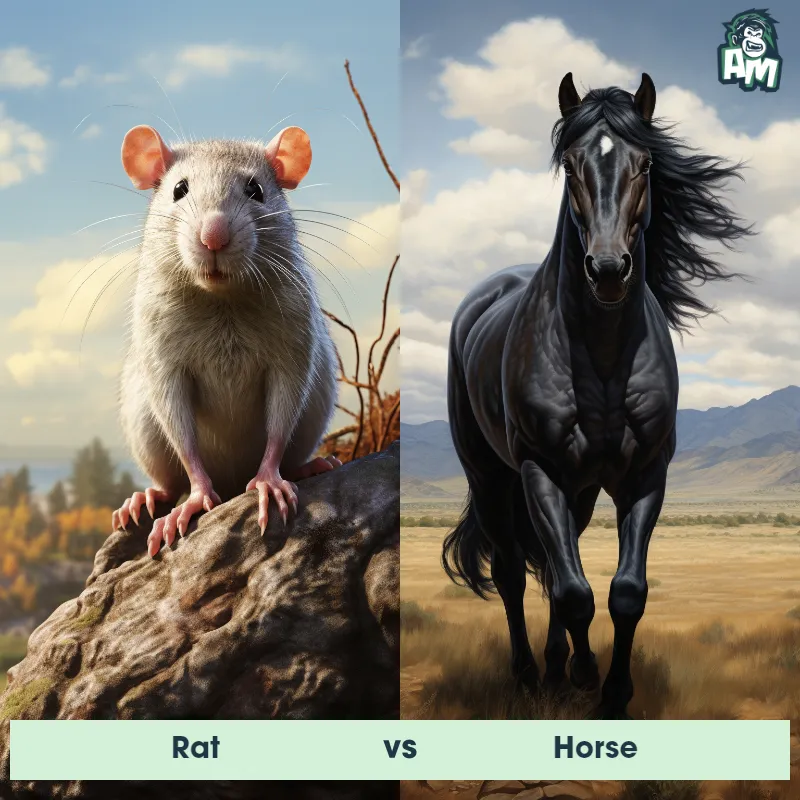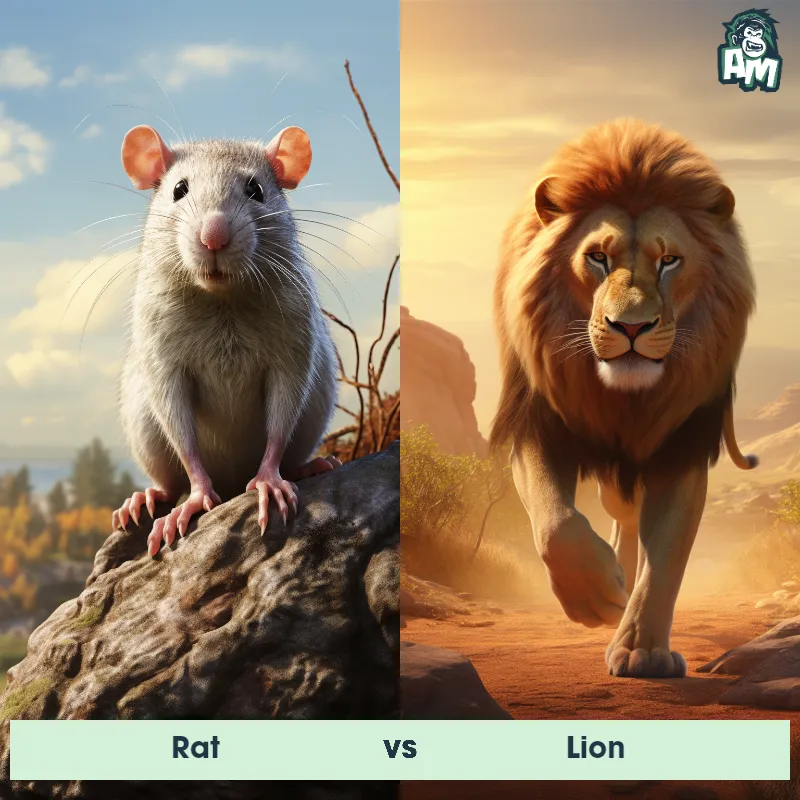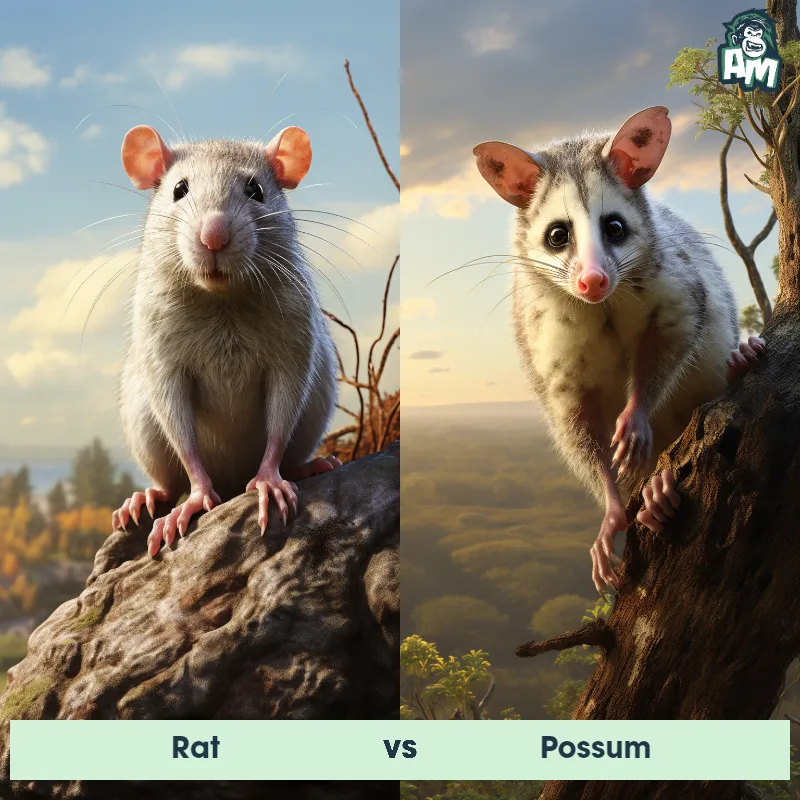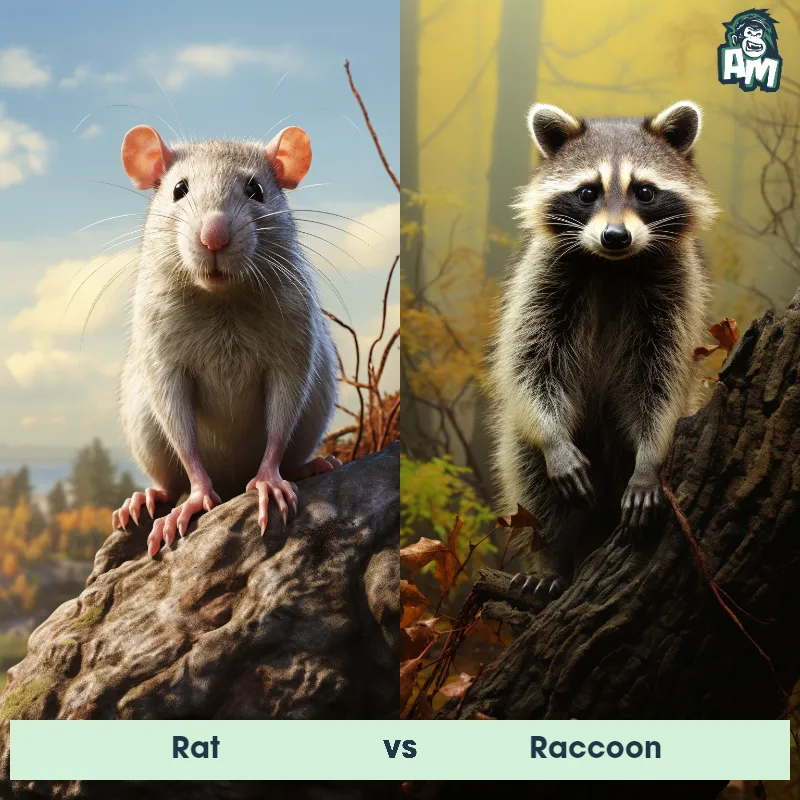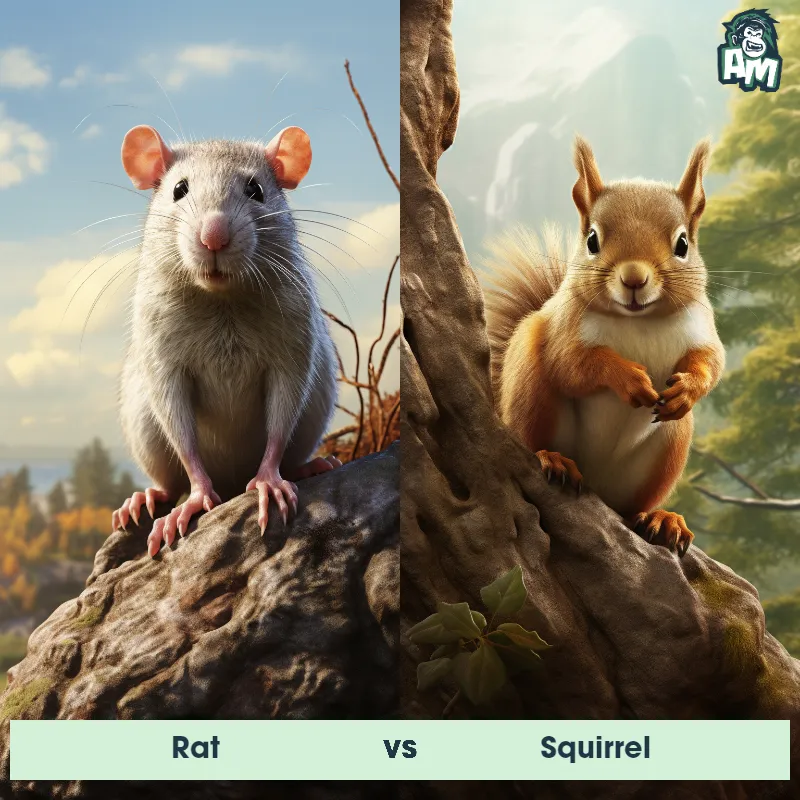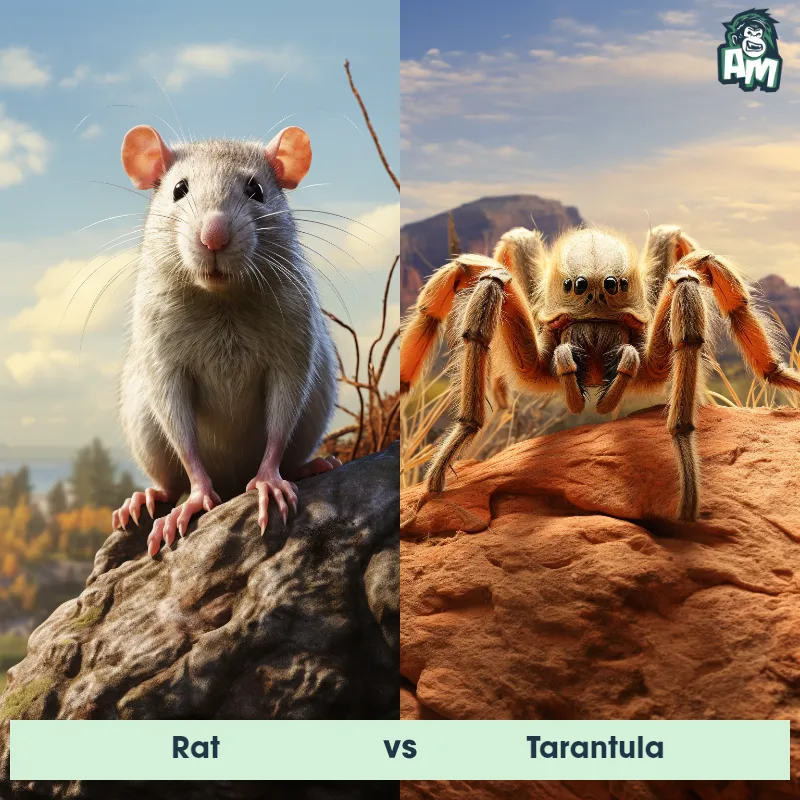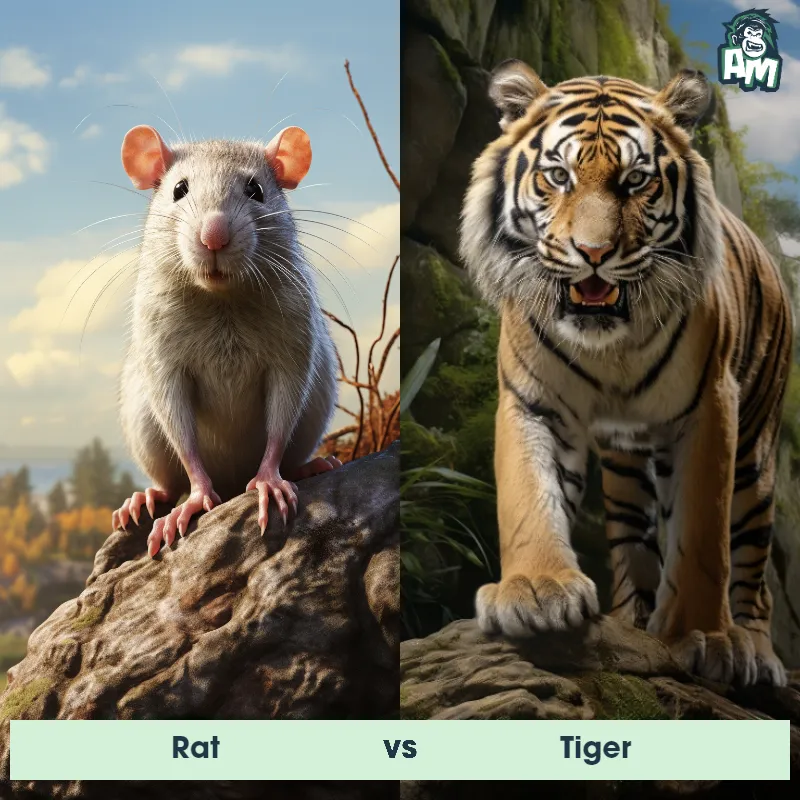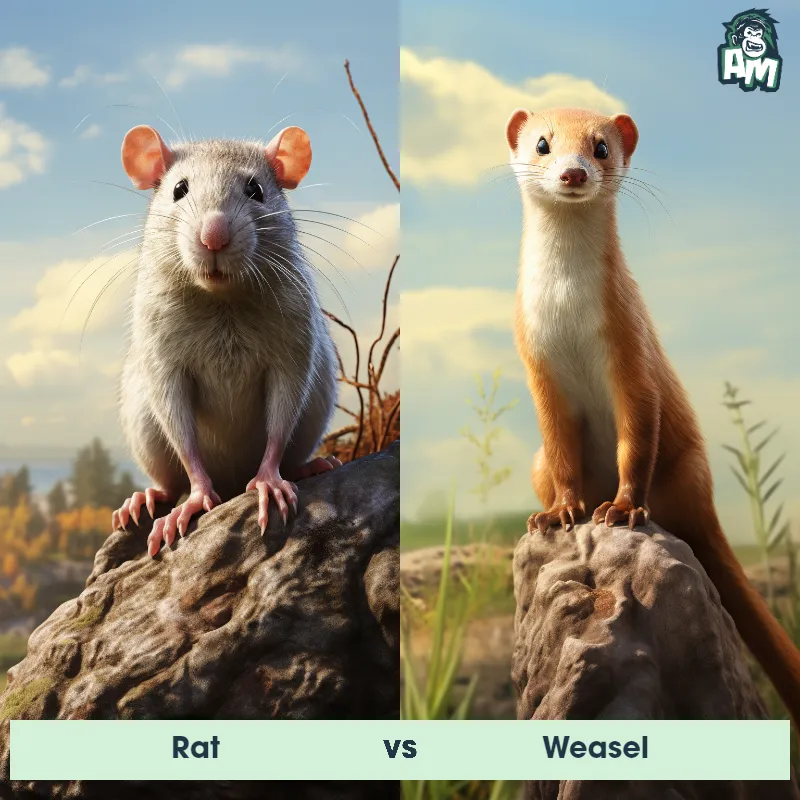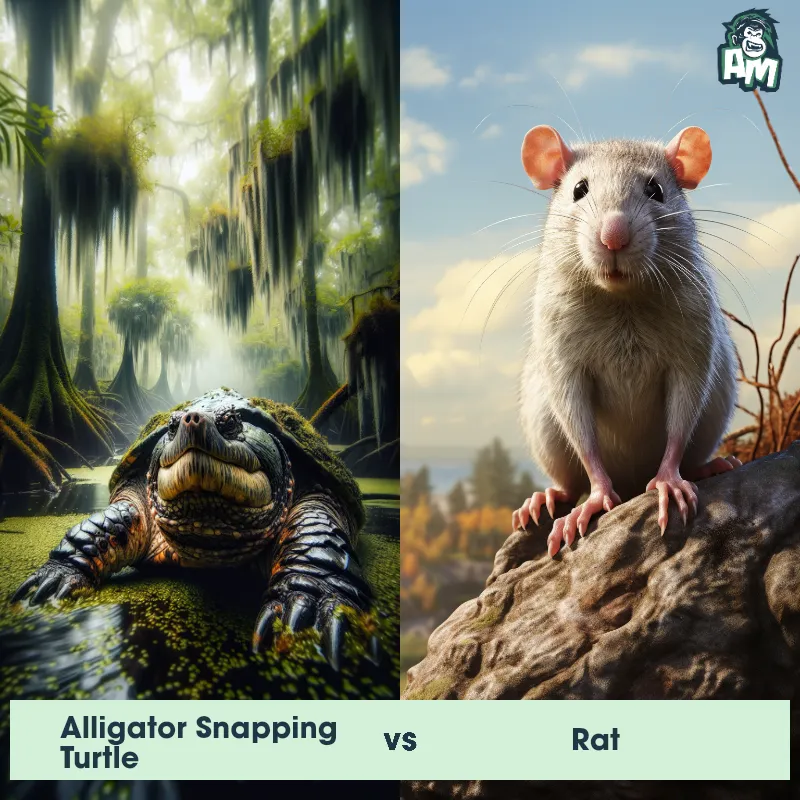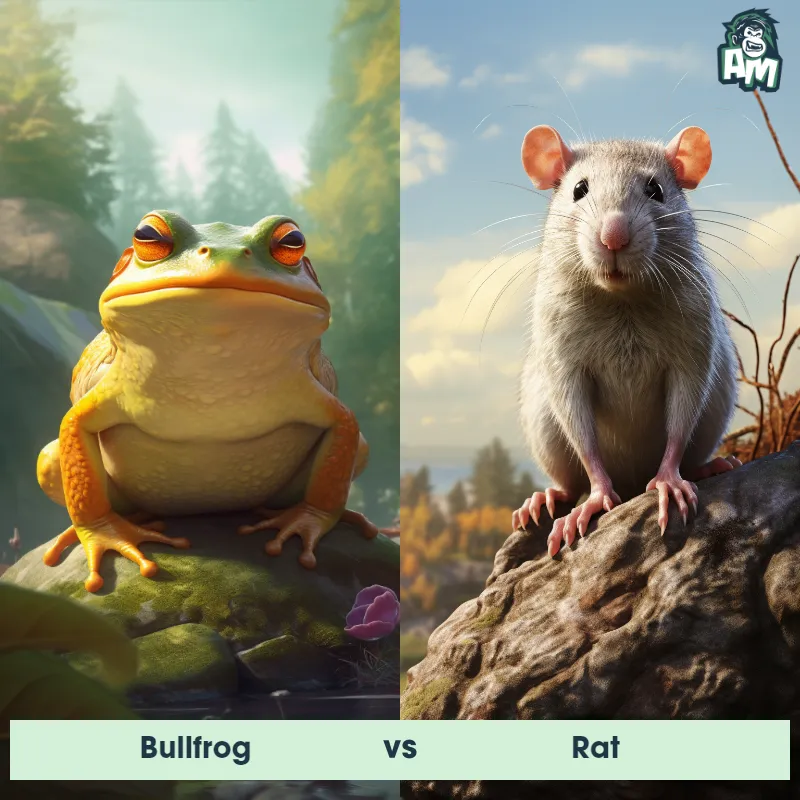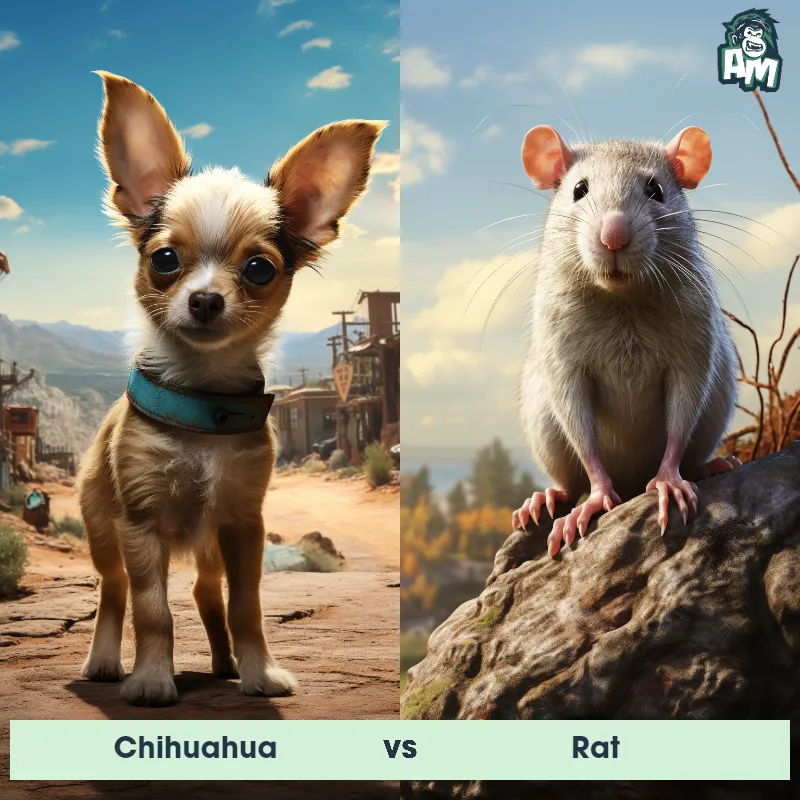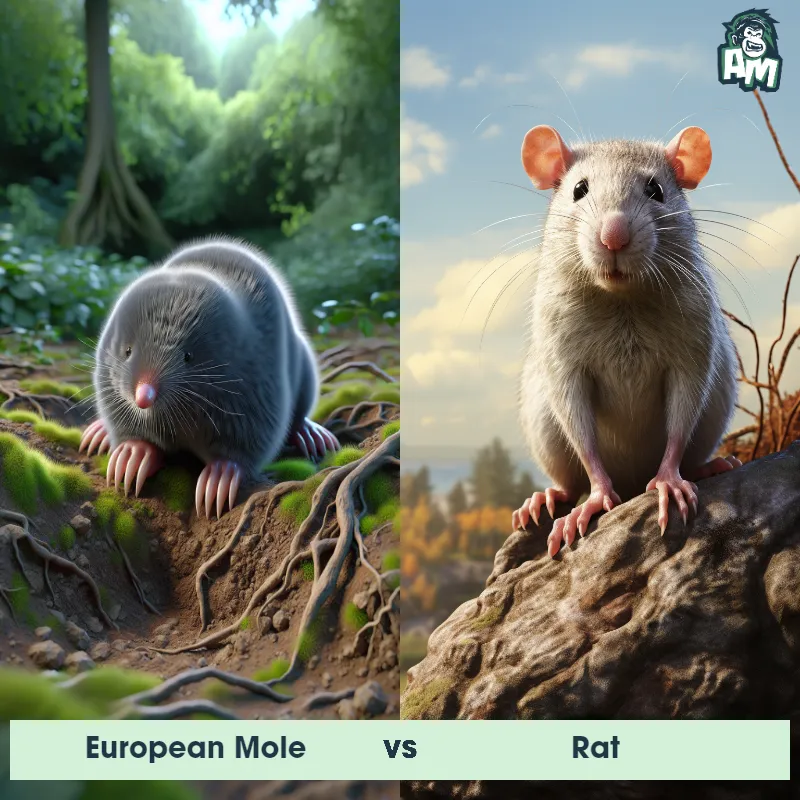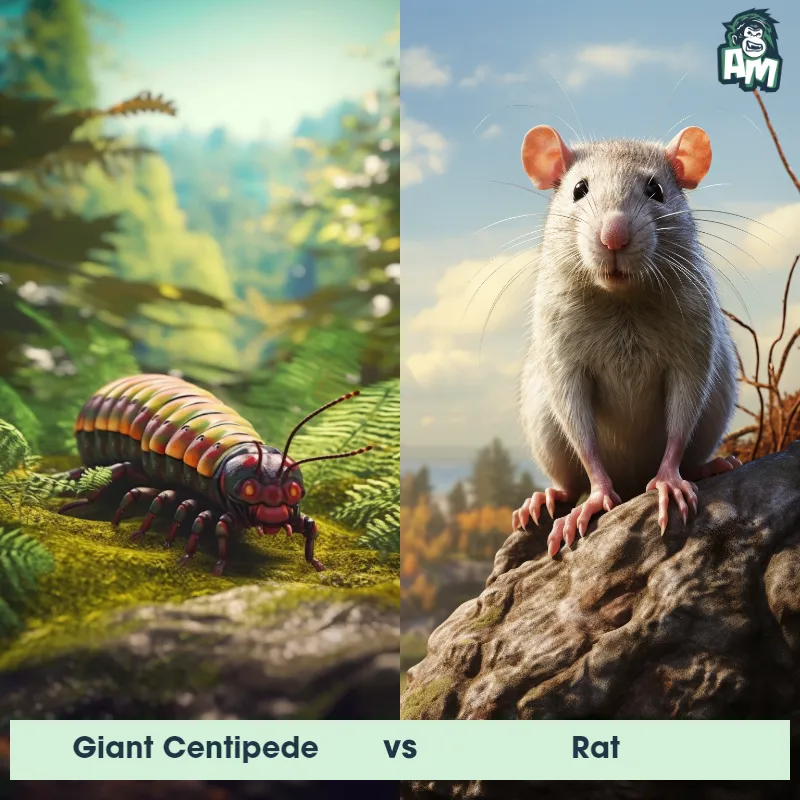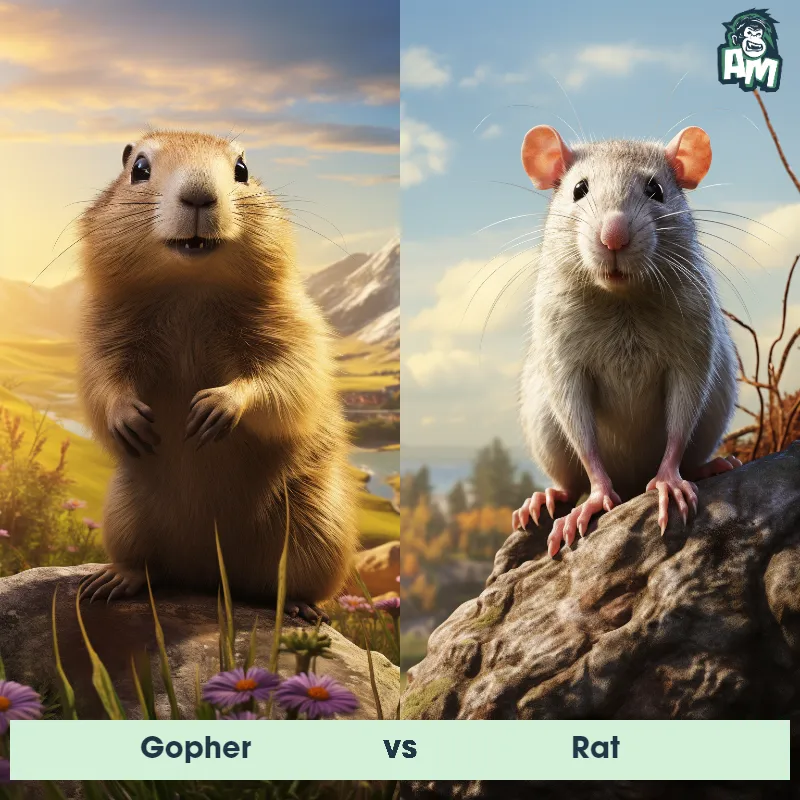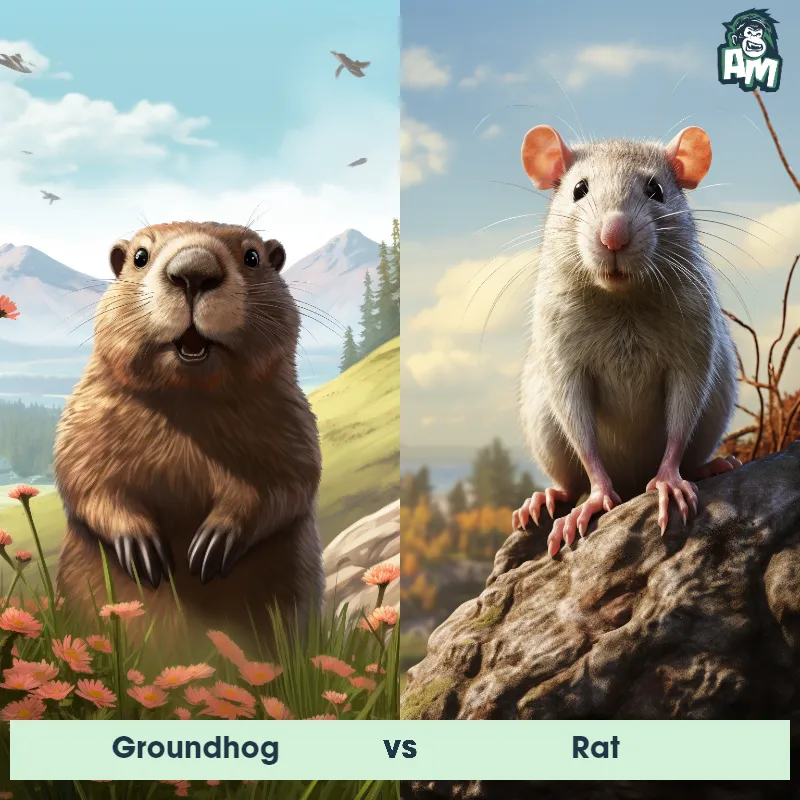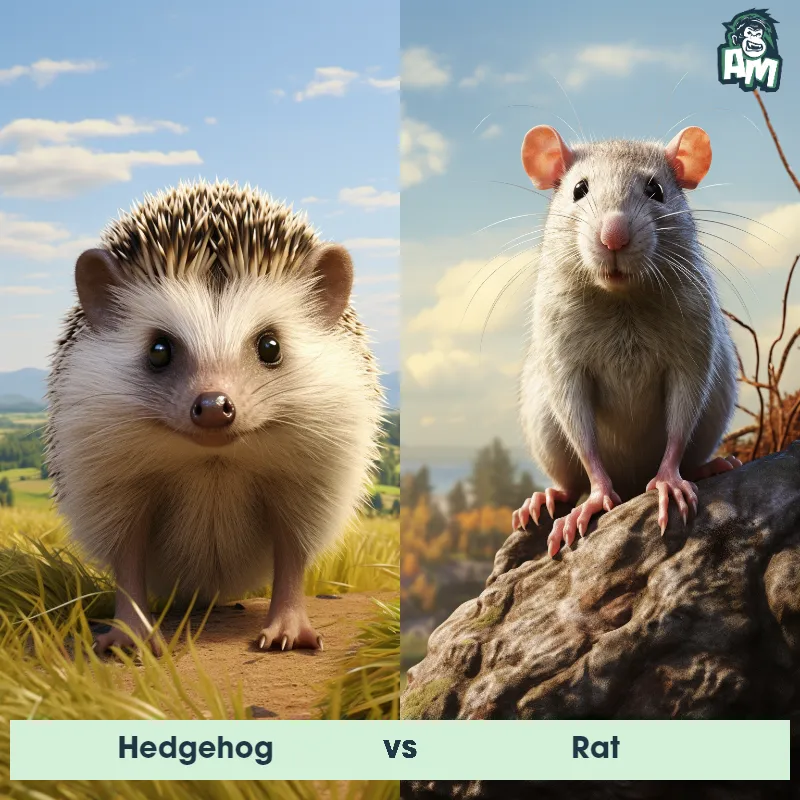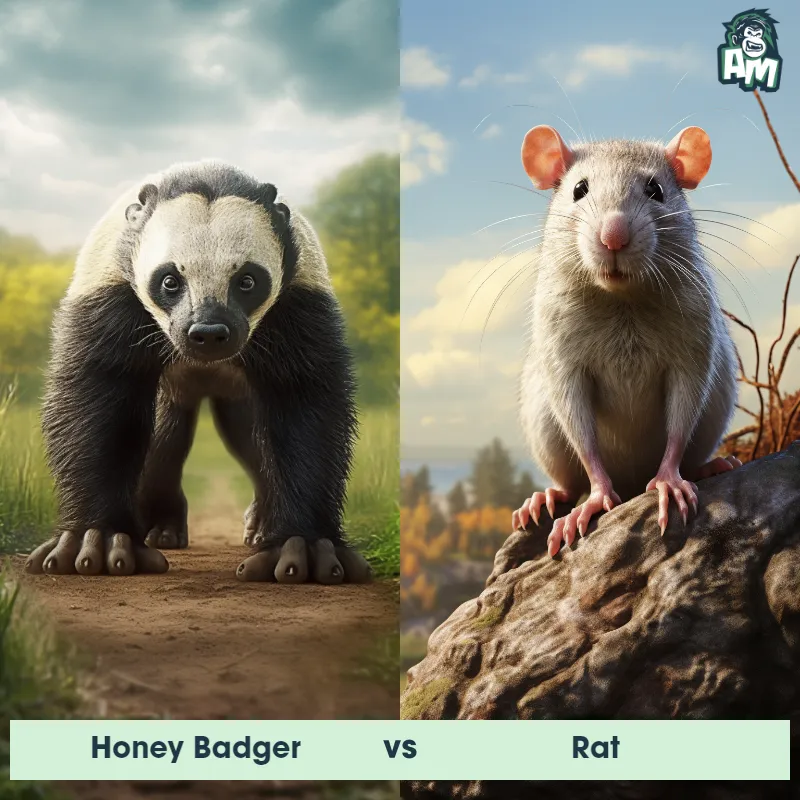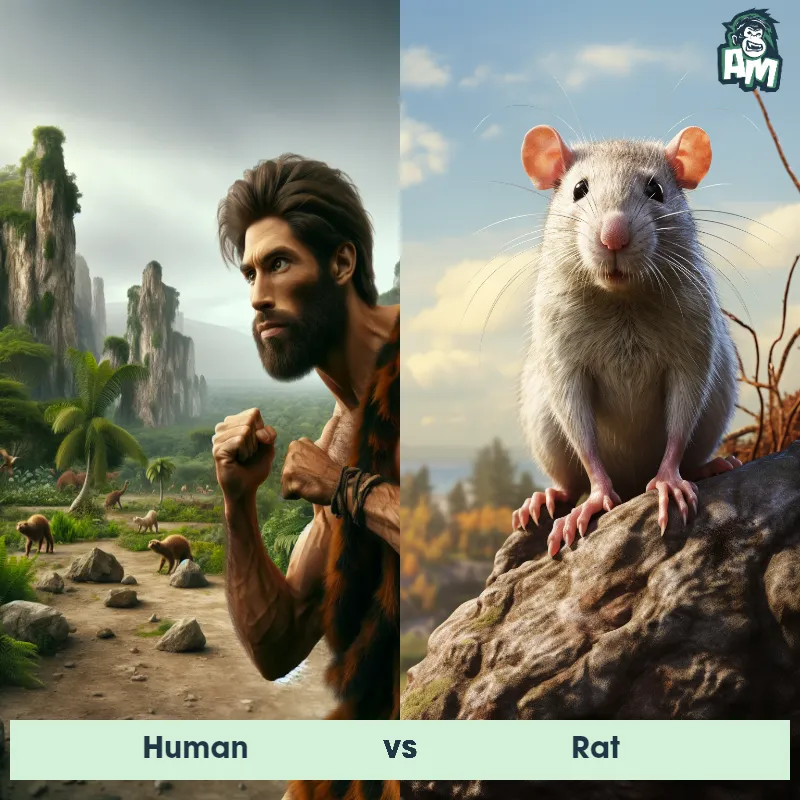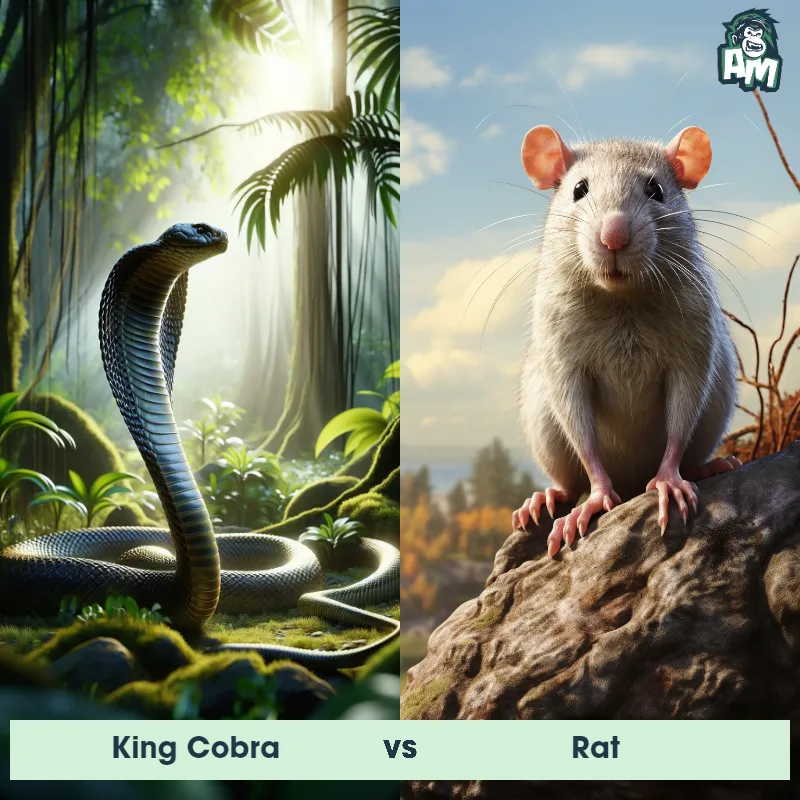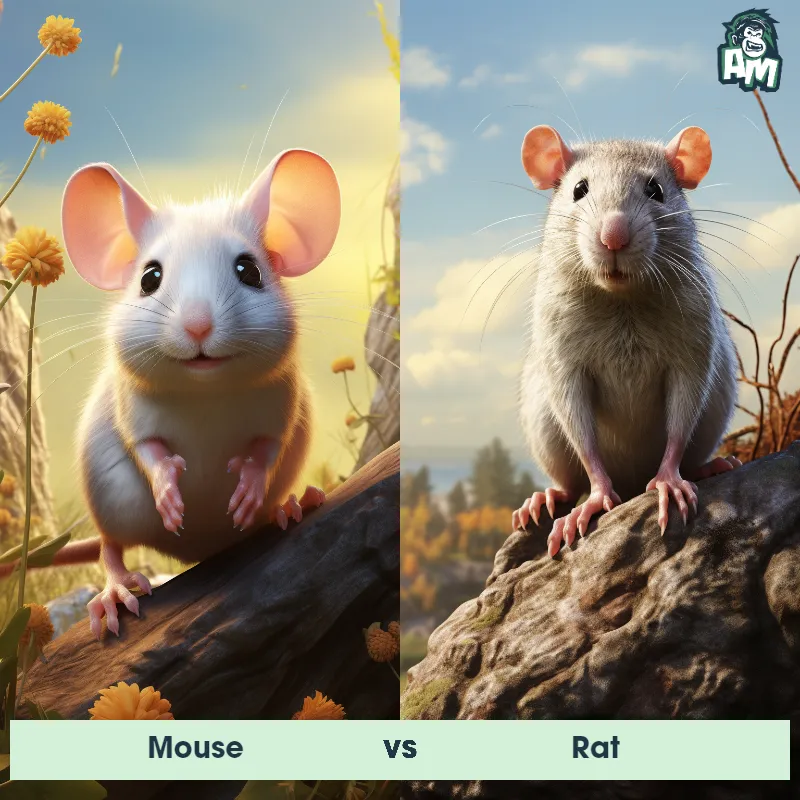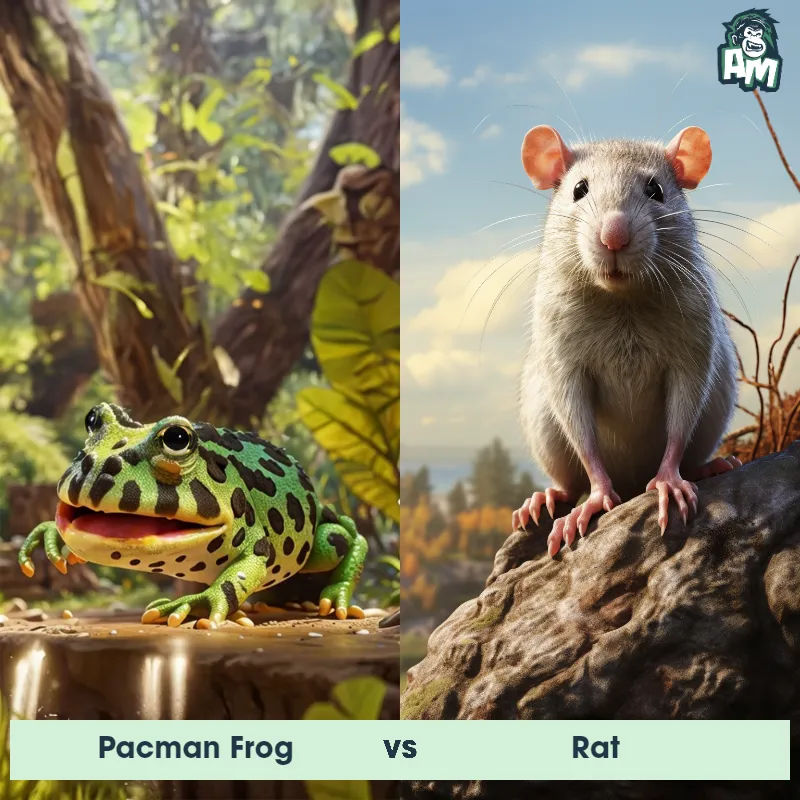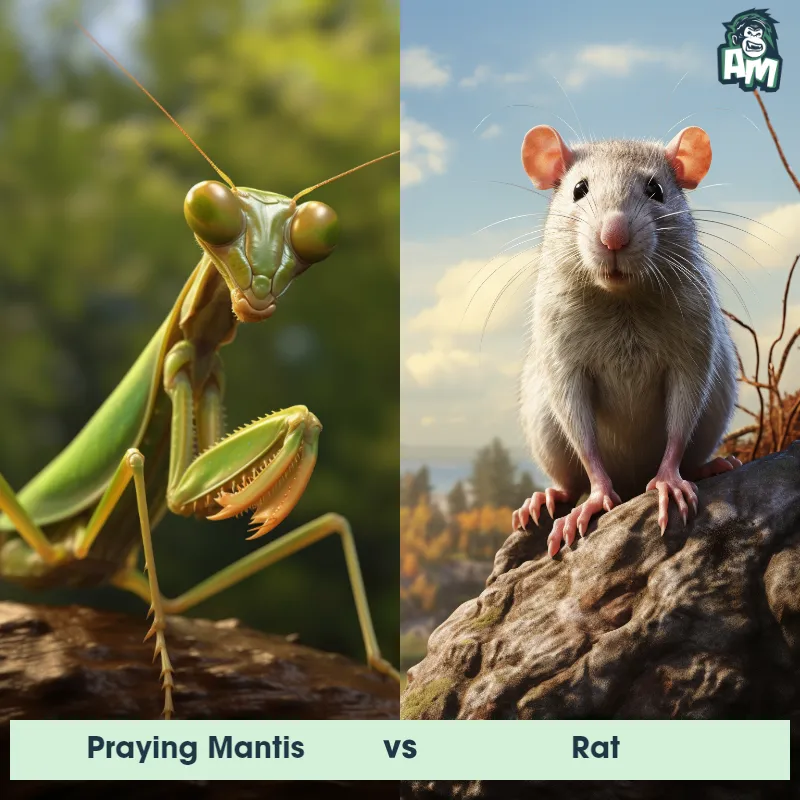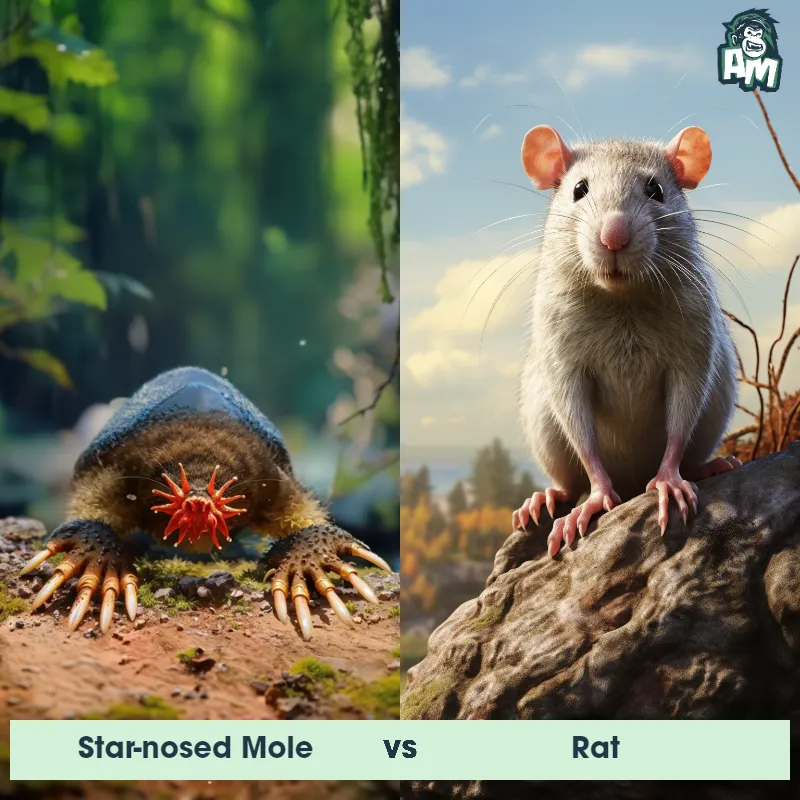The Rat
The rat, also known as Rattus, is a small mammal that belongs to the rodent family. It has a compact body covered in short fur, with a long, scaly tail. Rats have sharp incisor teeth that continuously grow throughout their lives. They have excellent hearing and a strong sense of smell, which helps them navigate their environment and locate food. Rats are highly adaptable and can be found in various habitats worldwide, including urban areas. They reproduce quickly and have been known to carry diseases, making them both a pest and a research subject for scientists.

| Rat | |
|---|---|
| Size | 9 to 11 inches (22.86 to 27.94 cm) |
| Weight | 0.77 to 1.1 lbs (350 to 500 grams) |
| Speed | 7mph (11km/h) |
| Key Strength | Strong instinct to gnaw |
| Biggest Weakness | Small size and lack of defensive mechanisms |
| Scientific Name | Rattus |
| Family | Muridae |
| Habitat | Various environments, including urban areas, forests, and fields |
| Geography | Worldwide, except for Arctic and Antarctic regions |
| Diet | Omnivorous (grains, fruits, vegetables, meat, eggs) |
| Lifespan | 1 year - 4 years |

The Rat
The rat, also known as Rattus, is a small mammal that belongs to the rodent family. It has a compact body covered in short fur, with a long, scaly tail. Rats have sharp incisor teeth that continuously grow throughout their lives. They have excellent hearing and a strong sense of smell, which helps them navigate their environment and locate food. Rats are highly adaptable and can be found in various habitats worldwide, including urban areas. They reproduce quickly and have been known to carry diseases, making them both a pest and a research subject for scientists.
Fun Fact: The rat has a unique talent for squeezing through tiny spaces due to its flexible skeletal system and ability to collapse its ribcage, which allows it to fit into narrow gaps and holes that are much smaller than its actual size.
| Rat | |
|---|---|
| Size | 9 to 11 inches (22.86 to 27.94 cm) |
| Weight | 0.77 to 1.1 lbs (350 to 500 grams) |
| Speed | 7mph (11km/h) |
| Key Strength | Strong instinct to gnaw |
| Biggest Weakness | Small size and lack of defensive mechanisms |
| Scientific Name | Rattus |
| Family | Muridae |
| Habitat | Various environments, including urban areas, forests, and fields |
| Geography | Worldwide, except for Arctic and Antarctic regions |
| Diet | Omnivorous (grains, fruits, vegetables, meat, eggs) |
| Lifespan | 1 year - 4 years |
Match Highlights
Rat Matchups
We use AI to simulate matchups between the Rat and other animals. Our simulation considers size, strength, and natural predatory behaviors to determine the most likely outcome.
Rat: Diet, Predators, Aggression, and Defensive Behaviors
What do rats eat?
Rats are omnivores, meaning they eat a wide variety of foods. Their diet typically includes fruits, vegetables, grains, seeds, nuts, and even insects. Rats are known to scavenge for food in human settlements, garbage dumps, and fields. They have also been known to consume small animals and carrion if necessary.
Do rats have any predators?
Yes, rats have several predators in the wild. Some of their main predators include owls, hawks, snakes, foxes, and domestic pets such as cats and dogs. These predators rely on rats as a food source, hunting them for sustenance. Rats are often quick and sneaky in order to avoid being caught by their predators.
Are rats aggressive?
Rats are generally not aggressive towards humans unless they feel threatened or cornered. In the wild, rats may display aggressive behavior towards other rats when competing for food or territory. However, when confronted by humans, rats are more likely to flee or hide rather than attack.
Do rats fight?
Rats are known to engage in fights with each other, especially when establishing dominance within a group or defending their territory. These fights can involve physical aggression such as biting, scratching, and wrestling. Male rats are more likely to fight each other, especially during mating season.
How do rats defend themselves?
Rats primarily rely on their speed, agility, and sharp senses to defend themselves from predators. When threatened, rats will try to run away and hide in burrows or crevices. If cornered, they may exhibit defensive behaviors such as hissing, biting, and tail rattling to ward off their attacker. Rats can also emit high-pitched squeaks as a distress signal to warn others of potential danger.
What is the biggest weakness of rats in a fight?
One of the biggest weaknesses of rats in a fight is their relatively small size and stature compared to larger predators. While rats are agile and resourceful, they can easily be overpowered by larger animals with greater strength. In addition, rats have a limited ability to inflict serious harm on larger predators, making it challenging for them to prevail in physical confrontations.
Fun Fact: Rats are highly social animals that form complex social hierarchies within their colonies. They exhibit altruistic behaviors, such as grooming and sharing food with fellow group members, which promote cooperation and strengthen the social cohesion of the group.
Fun Fact: Rats are incredibly intelligent creatures and are often used in scientific experiments to study various aspects of learning, memory, and problem-solving. They have remarkable cognitive abilities and can be trained to perform complex tasks, such as navigating mazes and pressing certain buttons in response to specific stimuli.



